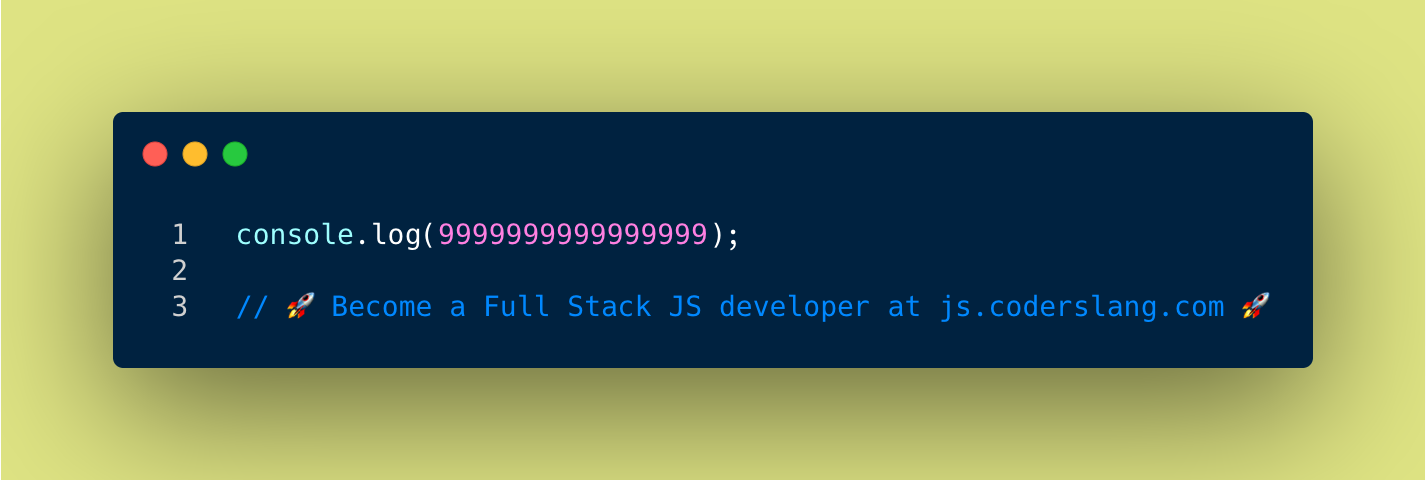
We’re just logging a number, what can go wrong here?
.
.
.
.
.
.
.
.
.
.
.
.
.
.
.
.
.
.
Under the hood, there are no integers in JavaScript.
All numbers are represented as 64-bit floats. This is also known as double precision.
52 bits are used to store digits, 11 bits serve to track the position of the decimal point, and 1 bit holds the sign and determines whether the number is positive or negative.
When there’s not enough “space” to store the whole number, then rounding to the nearest possible integer occurs.
It’s impossible to store the number 9999999999999999 using 52 bits, so the rounding gets rid of the least significant digits which leads to the result of 10000000000000000.
In JavaScript, no error will be thrown in this case.
If you haven’t quite understood what’s going on here, make sure to read the lecture on Binary Number System of my Full Stack JS course CoderslangJS.
ANSWER: 10000000000000000 will be printed to the screen.